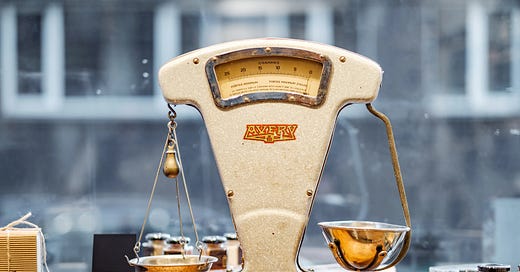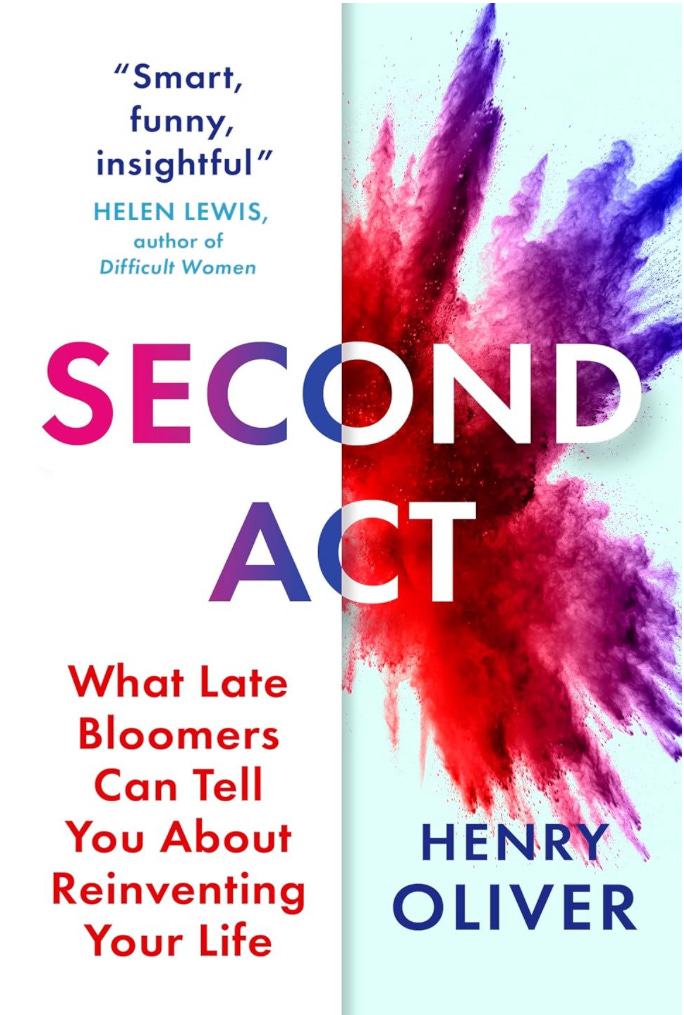Women must give up living an artist’s life, if home duties are to be paramount
On taking a break from Substack
Some readers have wondered where I’ve got to recently. There’s nothing dramatic to share, it’s just that when the children took a break from homeschooling, I took a break from Substack. And I was surprised by how much I liked it, and how little I felt the need to come back.
I’ve only ever written How We Homeschool because I enjoy it, and because I can feel that it’s good for me to have a project that isn’t immediately connected to my children, the laundry, the endless round of meals and washing-up. I love making connections with homeschoolers around the world, and I love hearing that someone else loves a book we’ve enjoyed ourselves or had a bad day just like we did. So why the luxurious freedom I felt when I let it drop?
A nineteenth century novelist and a twenty-first century economist have given me some ways to think about this.
In The Brontë Myth by Lucasta Miller I came across this letter written by Elizabeth Gaskell, ‘working through her confused feelings’ on the subject of combining womanly duty with artistic work. I’ve very slightly adjusted the grammar:
One thing is pretty clear: Women must give up living an artist’s life, if home duties are to be paramount. It is different with men, whose home duties are so small a part of their life. However we are talking of women. I am sure it is healthy for them to have the refuge of the hidden world of Art to shelter themselves in when too much pressed on by daily Lilliputian arrows of peddling cares; it keeps them from being morbid… and soothes them with its peace. I have felt this in writing, I see others feel it in music, you in painting, so assuredly a blending of the two is desirable. (Home duties and the development of the Individual I mean).
Then she reads back over what she’s written, and adds:
If Self is to be the end of exertion, those exertions are unholy, there is no doubt of that—and that is part of the danger in cultivating the Individual Life.
You can see Gaskell see-sawing between the two options, Art vs. Home, Self vs. Others. She may have been writing in about 1850, but the tension she describes is immediately comprehensible to me nearly two centuries later.
When my husband had chemotherapy several years ago (it sounds dramatic, but it’s all fine now), I decided that for the duration of his treatment my sole focus would be the home. I knew that the most helpful thing I could do would be to ensure that family life ran as smoothly as possible: that there were meals planned and cooked, clean clothes to wear, that things could be easily found where you expected to find them. In short, that I was not distracted by some other engrossing project. It worked a treat. Frankly, running a home is a full-time job, and if you give it all your time, it turns out it runs really well! But what works well for a time-limited course of chemotherapy cannot work in perpetuity, at least for me. I need an engrossing project. I can’t devote my life to washing up, no matter how much I like walking into a spotlessly-clean kitchen in the morning. I need my refuge from the Lilliputian arrows of peddling cares.
Equally, of course, I can’t abandon the kitchen sink altogether. If Self is to be the end of exertion, chaos ensues. Gaskell is right, there is danger in cultivating the Individual Life, though whether it’s unholy will depend on your perspective. But there’s danger in not cultivating it too. Mothers need their refuge.
If Elizabeth Gaskell’s perspective is raising your feminist hackles, Tim Harford has an economist’s view. In the Cautionary Tales podcast episode Do Nothing, Then Do Less he discusses the value of subtraction, of removing things, and the work of Leidy Klotz:
Everything has an opportunity cost. And what that means is everything you do, everything you buy, every hour you spend is getting in the way of something else. It’s something else you can’t do. It’s some other way you can’t spend that hour, it’s some other thing that you can’t afford to buy because you bought that first thing. And when you see everything as potentially getting in the way of everything else, you start to realise, as Leidy Klotz says, not only should you be subtracting the bad stuff, sometimes you have to subtract the good stuff as well, because subtracting the good stuff makes space for more good stuff and to enjoy the good stuff that you have.
That’s why I have found it hard to come back to Substack. I do enjoy it, and if I didn’t have it I would soon need some other outlet, some other refuge. But it takes me away from the domestic sphere, from my home duties. And although we often think of the domestic sphere as drudgery and hard work (and there is plenty of that, don’t get me wrong), I also love my domestic sphere. I love having unhurried time at home with my family, enjoying each others’ company. The home duties Gaskell refers to can be a source of joy as well as a list of chores. Gaskell’s ‘home duties’ are Harford’s ‘good stuff’, for me. And I can’t pretend I filled my newfound free time with housework. I did more reading, more outings with the children. I just had more time. Time for good stuff.
Like Gaskell, I do not have a remedy for this tension. I have enjoyed subtracting Substack from my life, but I also know that if I remove it entirely I will soon find something else to take its place. At other times in the 8+ years I’ve spent at home with the children I’ve written two murder mysteries, run a poetry quarterly, designed gardens. Even the simple act of reading a book is an essential refuge. We need both elements, Art and Home, Self and Others. As Gaskell says, a blending of the two is desirable. But somehow, sometimes, each seems antithetical to the other. Everything has an opportunity cost.
I imagine it like taking a boat down a river. One riverbank is Self, one bank is Others. We need the banks, of course. But when we veer too close to one we must push off in the other direction, always aiming to travel down the middle, never succeeding for long, but adjusting accordingly. The perfect balance, I am sure, doesn’t exist, or doesn’t exist for long. But by staying alert to the opportunity costs of everything we do, by sometimes subtracting things, sometimes adding them back in, we can hopefully stay not too far from equilibrium, at least some of the time.
I’d love your thoughts on this. I know lots of How We Homeschool readers are busy people with lots going on. Do you also feel the tension of needing the refuge but simultaneously feeling it pulling you away from family life? How do you try to keep the two things in balance? Please share in the Comments.
And in the next few days I have another Special Guest Edition coming for you, when
shares a day in her family’s homeschooling life. If you’d like to be next, get in touch! All styles of home education are welcome.Two books, and a book Substack for mothers
My husband’s first book is coming out in the UK on May 9th. It’s all about people who come into their own later in life, and what we can learn from them. It’s full of inspiring stories of men and women who refused to be limited by other people’s expectations. Take a look!
And
, who shared a brilliant guest post with How We Homeschool about a day home educating her daughter, has a new book coming out in June: It’s Not Fair: Why it’s time for a grown-up conversation about how adults treat children. Whether you’re already well-versed in adultism, or have no idea what it is, this is guaranteed to provide lots of food for thought. She’s sharing excerpts from the book over at her Substack, Small Places.And speaking of books, have you found
? It’s an ‘online community of mothers who read for themselves and to their children’. Mothers share their reading habits, favourite books, and general book chat. I love it.Thanks for reading. If you’re not subscribed, sign up for free and never miss a post.
(The image of the balance scales is by Piret Ilver on Unsplash.)







I did not grow up in a very whole-family environment and knew that, in adulthood, that was what I longed for. To be home with my someday children. From a young age, too, I was an artist at heart, and craved an artistic life -- but was instead pushed towards paths of "success."
So much of my education experience in high school, college, and then graduate school really built out the framework of VALUE and WORTH being placed on title, status, income, etc, so by the time I got the job and the title and the income -- I threw that all out the window in a recession, started a photography business (because I could be creative AND make money), and worked from home to build that so when we started a family, I could do both. Understandably, by this point, I couldn't really make sense of what it was I actually believed about the value of my work. As an artist, business owner, homemaker -- then mother -- who all along really just wanted to be a mom and write.
I don't love housework -- I love the feeling after the housework is done. I don't love the minutae, monotonous tasks of motherhood -- but I love the feeling of being present for my children's becoming.
I never expected to homeschool, that was a 2020 thing that's stuck around for us (for now), and I think that's added the most to the tension of what it is I'm trying to accomplish as a writer AND mother AND homemaker. Because many days I'm wondering how we even got here?
Often, I think, "It would just be so much easier on all of us if I wasn't trying to write." And yet, when I don't do that -- when I spent so many years not doing exactly that -- I'm not sure that I was operating out of the fullness of my gifts. Or maybe I was, and I'm romanticizing what I've long believed was some part of my vocation.
I don't know. I don't have answers and I'm living in the tension, trying to stay in the flow of the river and off the banks... but goodness it's hard.
This resonates with a lot of what I’ve been wondering about as a stay at home mom and lover of writing/reading/other hobbies. I think that act of bouncing off the banks is, so often, where I’m at, seesawing back and forth. I love that used Elizabeth Gaskell as a reflection point. She’s one of my favorite authors and also seems like one of the few authors I love who I can also admire unreservedly as a person.